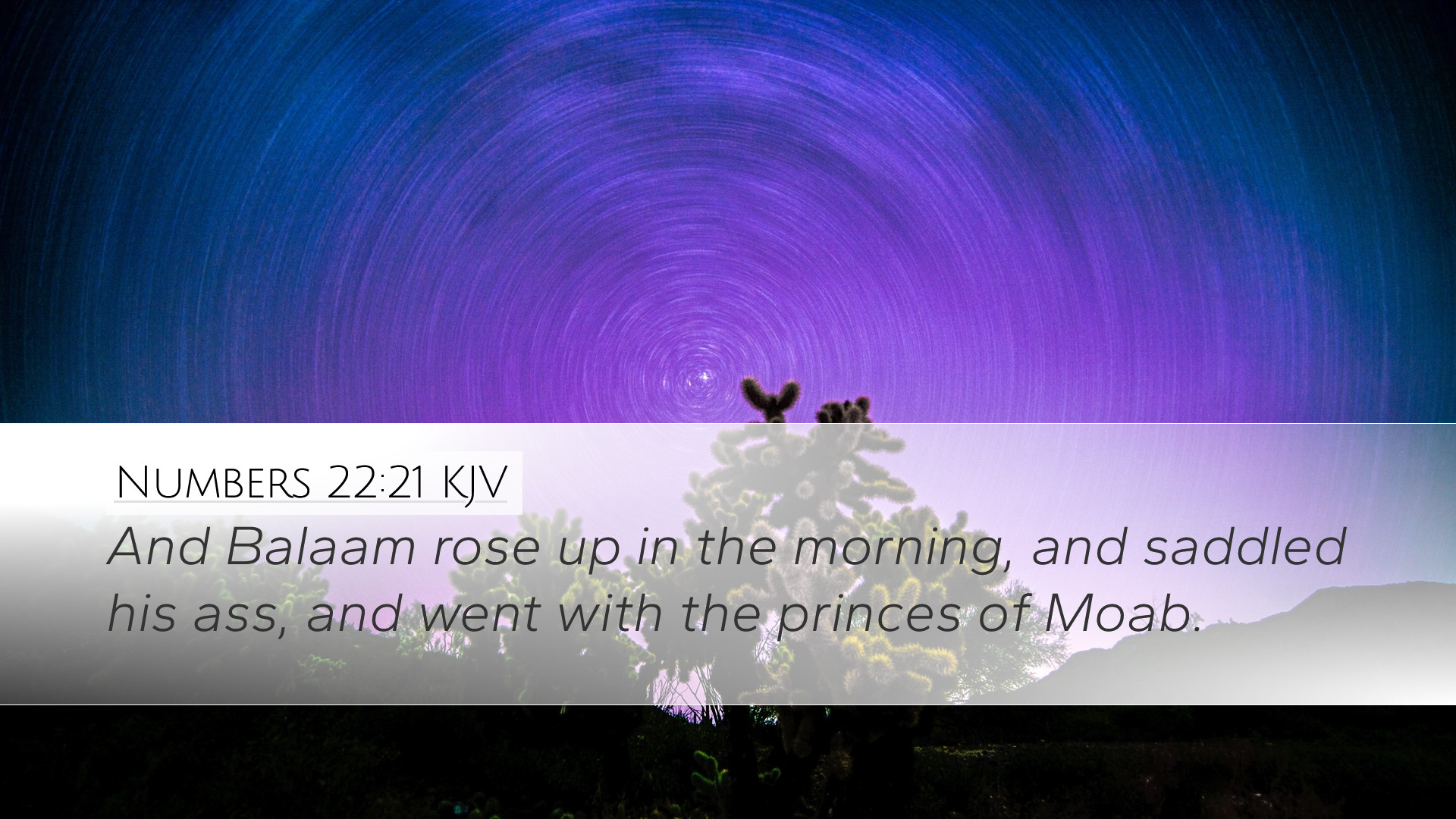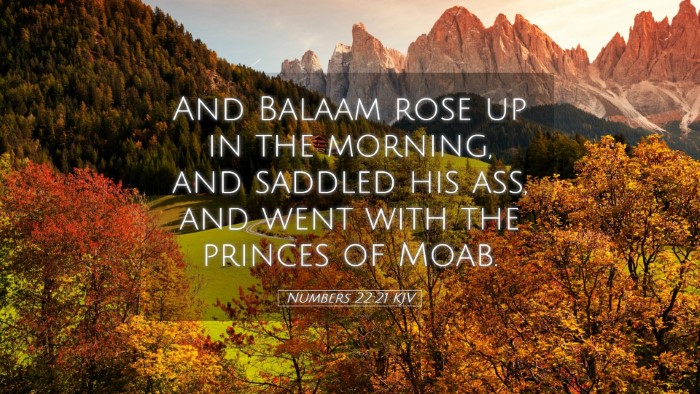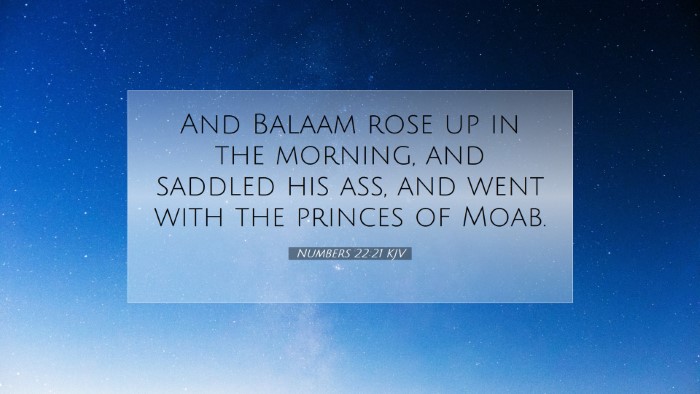Commentary on Numbers 22:21
Verse: "And Balaam rose up in the morning, and saddled his ass, and went with the princes of Moab."
Introduction
Numbers 22:21 stands as a pivotal verse in the narrative of Balaam, a figure both enigmatic and symbolic of the tension between divine instruction and human desire. This commentary combines insights from several public domain sources, aiming to provide a multifaceted understanding of the text for pastors, students, theologians, and scholars.
Contextual Background
Balaam, a well-known prophet in the ancient Near East, has been approached by Balak, the king of Moab, to curse the Israelites, who were encroaching on his territory. The setting of this passage is vital, as it highlights Balaam's motivations and the implications of his choices. The narrative unfolds as Balaam grapples with the call from Balak and the commands of God.
Exegetical Insights
Balaam's Decision
The phrase "And Balaam rose up in the morning" indicates a moment of resolution and action. Matthew Henry comments that Balaam was eager to meet the request of Balak, demonstrating a willingness that underlines his divided loyalties.
Albert Barnes elaborates on the significance of "saddled his ass," suggesting the act signifies preparation and intent to journey. It also reflects Balaam's readiness to pursue the more lucrative offer from Balak, portraying him as a man caught between obedience to God and the allure of worldly reward.
Symbolism of the Ass
The mention of the ass (donkey) serves as a rich symbol within this narrative. Adam Clarke notes that the ass is often seen as a humble and obstinate creature, which can represent the folly of Balaam's choices. This creature becomes a vehicle of a divine message, underscoring the tension between human ambitions and God’s purposes.
Theological Implications
This verse delineates the struggle between divine will and personal gain. Balaam's journey can be interpreted as reflective of the broader human experience—the temptation to pursue paths that diverge from godly instruction for the sake of temporal gain.
- Obedience to God: The priority of divine command is paramount; Balaam's actions foreshadow a greater conflict between God’s intentions and human desires.
- God’s Sovereignty: The Lord’s control over the situation will soon be made evident as the narrative unfolds, demonstrating His authority even over those who rebel.
Practical Applications
For pastors and church leaders, this passage serves as a cautionary tale regarding the pursuit of influence and wealth at the expense of spiritual integrity. There are several lessons that can be drawn:
- Discernment: Leaders must practice discernment when faced with opportunities that seem attractive but may conflict with biblical teachings.
- Submission to God's Will: True faithfulness involves submitting one’s will to God, rather than pursuing personal agendas.
Conclusion
Numbers 22:21 is more than a mere narrative detail; it encapsulates the profound complexities of human choice and divine authority. The insights provided from various commentaries highlight the essential themes of obedience, the dangers of compromise, and the rich symbolism present in the Scripture. As we reflect on this text, may we be compelled to pursue God’s will wholeheartedly, remaining vigilant against the temptations that seek to divert our path.


